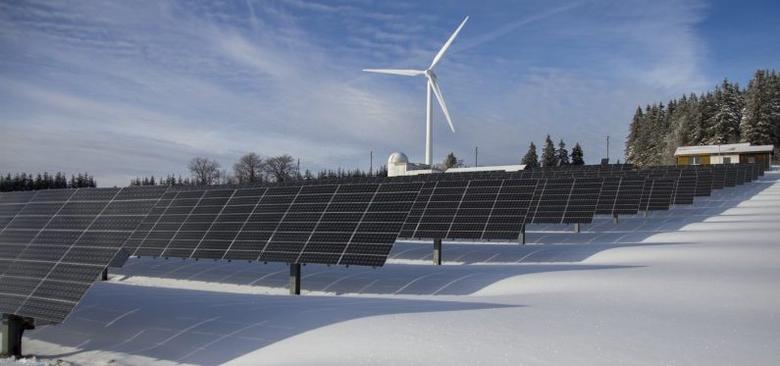
EBRD DECARBONISATION STRATEGY

EBRD - The EBRD Board of Directors approved a new energy sector strategy that targets the creation of an energy sector which delivers clean, secure and affordable energy for all.
The strategy for the next five years emphasises the scaling-up of investment in renewables, supporting the integration of energy systems, promoting the switch to cleaner and more resilient energy sources and facilitating electrification as a means to clean the economies where the Bank invests, which include some of the least energy-efficient and most polluting economies and cities in the world.
Consistent with this direction the strategy confirms that the Bank will no longer finance thermal coal mining or coal-fired electricity generation. The Bank will also stop funding any upstream oil exploration, and will not finance upstream oil development projects except in rare and exceptional circumstances, where such investments reduce greenhouse gas emissions.
The Bank will continue to support the gas sector where it is consistent with a low-carbon transition that is both secure and affordable.
Nandita Parshad, EBRD Managing Director, Energy and Natural Resources, said: "Urgent and decisive steps are needed to address the challenges posed by climate change and poor air quality. This requires a fundamental shift away from hydrocarbons to cleaner energy sources. That means the electrification of economies, including industry, transport and heating, with that electricity generated overwhelmingly from renewable sources. This is the goal that we have placed at the centre of our new energy sector strategy: to decarbonise the power sector with a decisive shift away from the most polluting fuels. Achieving this goal requires smart, integrated and resilient networks and reliance on competitive, regionally integrated and resilient markets to deliver this change. Our dual role as investors and facilitators of policy reform, coupled with our commitment to promoting environmentally sound and sustainable development, means we are ideally placed to deliver this transition."
The new strategy sets the strategic direction of the EBRD's investments and policy dialogue in the energy sectors of the 38 economies where it works for the period 2019-23. It covers the Bank's activities in two areas: electricity generation, transmission, distribution, storage and supply; and hydrocarbon extraction, processing, transportation, distribution, storage and supply. The strategy focuses on the generation and supply of energy and thus complements the EBRD's efforts in demand-side energy efficiency.
The EBRD has a long history of investments (directly and through local financial institutions) and policy activities that aim to improve energy efficiency in buildings, transport systems, industry and agriculture. Rapid reduction in energy and carbon intensity in these sectors is crucial to accelerate the shift towards low-carbon and resilient development pathways.
From January 2019, the EBRD is also adopting a Shadow Carbon Pricing Methodology for use in EBRD projects with significant greenhouse gas emission footprints. When considering such projects, the Bank will undertake an economic analysis that will account for key externalities, including the cost of greenhouse gas emissions. The EBRD's approach, including the range of shadow prices it intends to use based on the high-level commission on carbon pricing, will be made available in early 2019.
-----
Earlier:

2018, November, 14, 12:10:00
NATURAL GAS: THE SECONDREUTERS - Global gas demand would increase by 1.6 percent a year to 2040 and would be 45 percent higher by then than today,
|

2018, November, 14, 11:55:00
NUCLEAR NEEDS INVESTMENTWNN - world electricity generation increases from 25,679 TWh in 2017 to 30,253 TWh in 2025 and to 40,443 TWh in 2040. Global nuclear generation increases from 2637 TWh in 2017 to 3726 TWh in 2040, when it will account for around 9% of total electricity production, down from the current level of about 10.5%. Fossil fuels remain the major source for electricity generation under this scenario, but their share falls from around two-thirds today to under 50% by 2040.
|

2018, November, 14, 11:50:00
NUCLEAR POWER CHANGINGWNN - The search for solutions to climate change must include discussion of nuclear power, Scott Foster, director of the Sustainable Energy Division of UNECE, told
|

2018, September, 26, 09:35:00
OPEC: GLOBAL ENERGY DEMAND WILL UP BY 33%OPEC - Total primary energy demand is expected to increase by 91 mboe/d between 2015 and 2040 to reach 365 mboe/d in 2040
|

2018, September, 17, 14:55:00
SEVEN NUCLEAR FACTORSWNN - The future of nuclear energy depends on the industry’s readiness to address the seven factors influencing its prospects, the deputy director general of the International Atomic Energy Agency (IAEA) told delegates at the World Nuclear Association Symposium 2018 held in London last week.
|

2018, August, 29, 10:50:00
РОССИЯ - ГЛОБАЛЬНЫЙ ЭНЕРГЕТИЧЕСКИЙ ЛИДЕРМИНЭНЕРГО РОССИИ - Президент добавил, что по итогам 2017 года Россия подтвердила свой статус одного из лидеров глобального энергетического рынка: «Мы заняли первое место в мире по объему добычи нефти, второе – по добыче газа. Россия входит в число ведущих стран по объему выработки электроэнергии и добыче угля: по электроэнергии – на четвертом месте, по углю – шестое место в мире». По словам Владимира Путина, в прошлом году сумма инвестиций в отрасли выросла на 10 процентов и составила 3,5 триллиона рублей.
|

2018, July, 23, 13:25:00
GLOBAL ENERGY INVESTMENT DOWN 2%IEA - For the third consecutive year, global energy investment declined, to USD 1.8 trillion (United States dollars) in 2017 – a fall of 2% in real terms. The power generation sector accounted for most of this decline, due to fewer additions of coal, hydro and nuclear power capacity, which more than offset increased investment in solar photovoltaics. |












